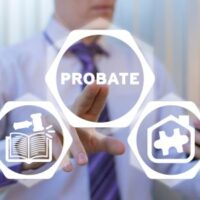Atlanta Case Shines a Light on Probate Fraud

Probate litigation often revolves around loved ones or creditors fighting over the contents of an estate. However, litigation can also arise when the documents themselves are in question. Probate fraud and forgery can stop intended beneficiaries from receiving the inheritance that was always supposed to go to them. This was recently played out, unfortunately, in a shocking case arising out of Georgia.
What is Probate Fraud?
Probate fraud litigation are lawsuits brought by someone who has an interest in the will or trust that is to go through probate. In fraud cases it is often asserted that the document submitted for probate has been forged, or was executed based on deception. These claims result in probate fraud litigation that often claims tortious interference with an expected inheritance. What this essentially means, in layman’s terms, is that someone is wrongfully interfering with an intended inheritance rights.
Atlanta Case
A stunning case of probate fraud recently arose in Atlanta, Georgia. It is important to note that this is a Georgia case, and their laws and processes differ from that of Florida.
There, it came to light that a few days after a man named Evans Lee Jr died, a man named Randy Watson signed a sworn statement and submitted to the Georgia probate court that he was Mr. Lee’s “only child” and only “heir.” He sought to inherit whatever assets remained of Mr. Lee’s estate. No additional proof or supplemental documentation was required, and Mr. Watson was named estate executor and gained access to Mr. Lee’s home and remaining assets.
The problem – Mr. Lee did not have any children. Mr. Lee’s nephew filed suit after he heard of Mr. Watson’s claims – a court-mandated paternity test confirms that Mr. Watson has no relation to the family at all.
By then, it was too late. Mr. Lee’s home had been foreclosed. Most items are gone, and tons of pounds of his items had been taken away by dumpsters clearing the house. Even Mr. Lee’s ashes remain missing.
The above is an awful instance of probate fraud – and at the end of the day it is a very clear-cut and obvious case. The courts were able to definitively establish that the facts presented to the court in order to gain access to the estate were untrue. There are many ways that probate fraud might be accomplished, unfortunately. And not all of them are so clean-cut to prove. Many times, what is argued over is someone’s intent, or influence over the testator and whether it was inappropriate.
Common Types of Probate Fraud
The term “fraud” covers a wide range of deceptive and manipulative behaviors. This means that probate fraud cases will often deal with entirely different scenarios. However, the following are some of the more common types of probate fraud cases.
- Forged Estate Documents
- Claims of Undue Influence
- Estate Fraud – such as someone leading the testator to believe that they were a blood relative when they knew they were not.
- Executor or Guardianship Fraud and Breaching a Fiduciary Duty
Contact Suncoast Civil Law
There are many ways that fraud can sneak into the probate of a loved one’s estate. Fortunately, you do not have to navigate the probate process alone. The experienced Sarasota wills & probate attorneys at Suncoast Civil law can help you in any probate-related issues you might be facing. Contact our office today to begin working with our team.
Sources:
investigatetv.com/2024/11/13/how-fraud-involving-deeds-probate-court-is-impacting-families-across-country/
atlantanewsfirst.com/2024/07/25/metro-family-loses-inheritance-family-home-even-their-late-uncles-ashes/
